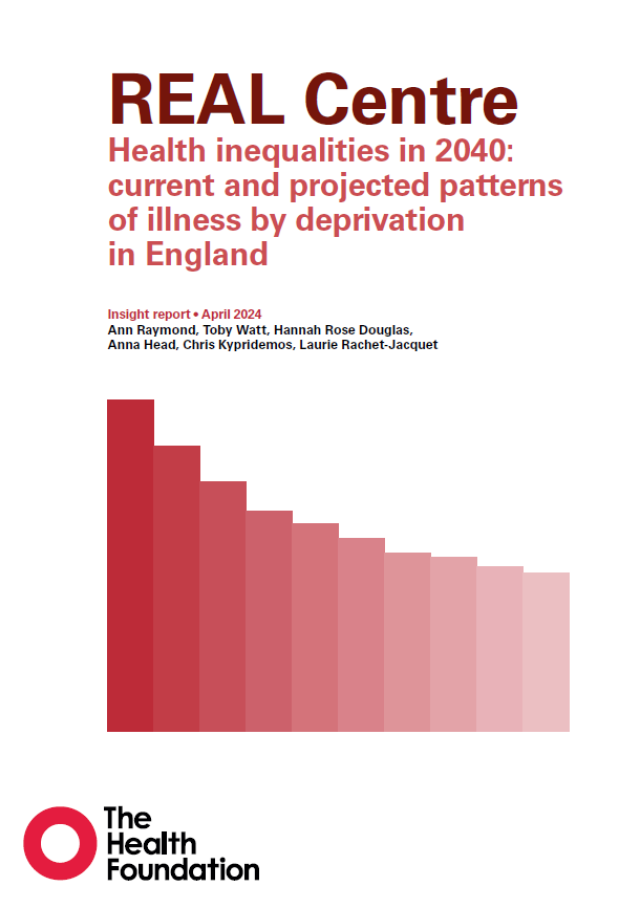Health inequalities in 2040 Current and projected patterns of illness by deprivation in England
April 2024

Key findings
- On current trends, inequalities in health will persist over the next two decades: people in the 10% most deprived areas can expect to be diagnosed with major illness a decade earlier than people in the 10% least deprived areas.
- A small group of long-term conditions contribute to most of the observed health inequalities, out of which chronic pain, type 2 diabetes and anxiety and depression are projected to increase at a faster rate in the 10% most deprived areas by 2040.
- These conditions are typically managed in primary care, underlining the need to invest in general practice, particularly in the most deprived areas, and community-based services and focus on prevention and early intervention.
- Inequalities in working-age ill-health is also projected to persist. 80% of the increase in the number of working-age people living with major illness between 2019 and 2040 (from 3 million to 3.7 million) will be concentrated in more deprived areas (deciles 1–5).
- Action focused on risk factors linked to major illness is essential but insufficient on its own to tackle health inequalities. Making progress on inequalities in major illness will also require long-term effort across government and the economy to address the underlying causes of health inequality, such as poor housing, low income and insecure employment.
This report is the second output from the REAL Centre’s programme of research with the University of Liverpool. Building on the projections in Health in 2040, this report is one of the first studies to unpack patterns of inequalities in diagnosed illness by socioeconomic deprivation across England and project them into the future.
Stark inequalities are projected to stubbornly persist up to 2040, with profound implications not only for people’s quality of life, but also their ability to work and the wider economy. The report also finds that health inequality is largely due to a small group of long-term conditions, with chronic pain, type 2 diabetes and anxiety and depression projected to increase at a faster rate in the most deprived areas.
Good health is an asset to society. The health inequality we describe in this report need not exist. Anticipating these trends gives policymakers an opportunity to act now to address these inequalities and increase economic growth.
Cite this publication
Explore our Health in 2040 series
Work with us
We look for talented and passionate individuals as everyone at the Health Foundation has an important role to play.
View current vacanciesThe Q community
Q is an initiative connecting people with improvement expertise across the UK.
Find out more


